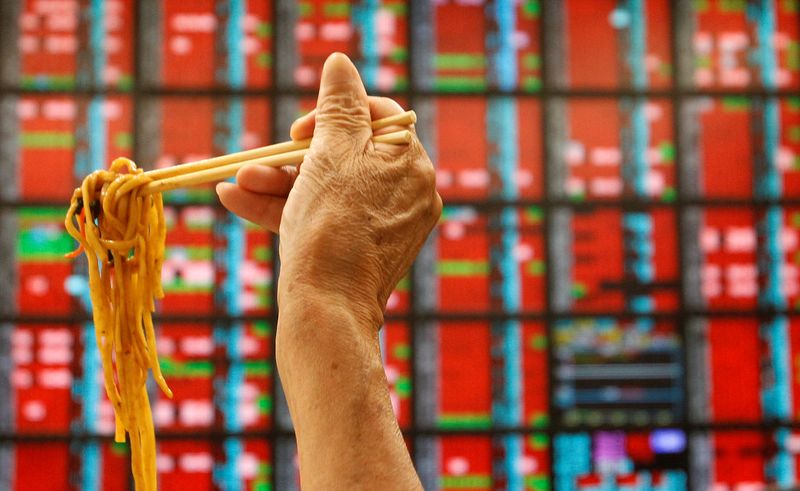This post was originally published on this site
https://i-invdn-com.akamaized.net/trkd-images/LYNXMPEGA70PX_L.jpg
SYDNEY (Reuters) – Stocks are expected to stay buoyant on Monday while the dollar is seen likely to extend its downward trend as Democrat Joe Biden won the U.S. presidential election in a move that analysts say would prop up risk assets.
The outcome was largely priced in by markets, which had been trading with the view of a Biden presidency and a Republican-controlled U.S. Senate late last week.
“This combination, of course, likely means a Biden presidency’s ambitions will be curtailed in a grid-locked political scene with very few landmark legislative changes being enacted by Congress,” said Tapas Strickland, a director of economics and markets at National Australia Bank (OTC:NABZY).
“Nevertheless, that also means less likelihood of regulatory changes, particularly favourable for tech, and tax changes which can be bullish for stocks.”
Indeed, equities rallied hard last week, with the S&P500 up 7.3%, clocking the best gains in an election week since 1932.
MSCI’s broadest index of Asia Pacific shares outside of Japan shot up 6.2% last week to clock its best weekly performance since early June.
Analysts warn the road might get tougher from here as investors focus on Biden’s ability to expand fiscal stimulus and measures to reduce the spread of COVID-19.
The United States saw a record number of new infections last week, with the total number of cases nearing 10 million.
A fiscal stimulus plan is still possible despite a divided government, analysts said, though a larger package is less likely. That puts the spotlight on the U.S. Federal Reserve to do more to bolster the world’s largest economy.
As a result, the dollar has weakened in recent days while growth proxies such as the Australian dollar have rallied as a Biden presidency is seen less likely to be confrontational on trade.
The dollar tumbled 9.3% last week against the Japanese yen, piling on losses of 10.4% the week before. It was last a shade weaker at 103.25.
The Aussie was up 0.3%, having jumped 3.3% last week.
Investor focus will also be on sterling and the euro this week with UK-EU trade negotiations coming to a head with the EU summit on Nov. 15.
Later in the day the Bank of England chief economist will give a speech on ‘The economic impact of coronavirus and long term implications for the UK’.
The euro, which climbed 1.9% last week, was a shade higher on Monday at $1.1887. Sterling was a shade weaker at $1.3146.

